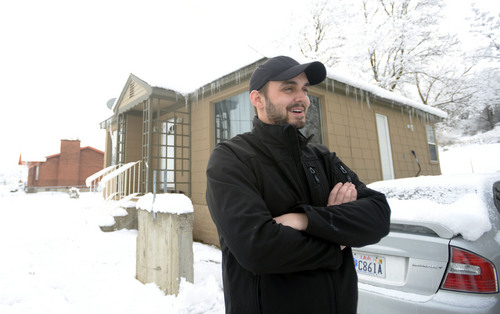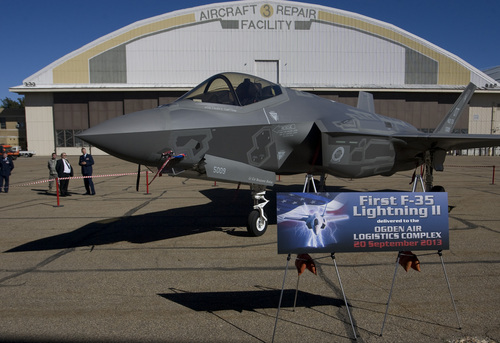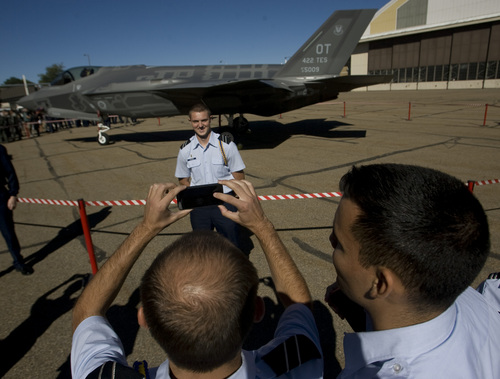This is an archived article that was published on sltrib.com in 2013, and information in the article may be outdated. It is provided only for personal research purposes and may not be reprinted.
South Weber • Starting in 2015, it's probably going to get louder more often above Nick Friddle's house.
Friddle, his wife and son live northeast of the runway at Hill Air Force Base. The Air Force recently announced the base will receive a squadron of F-35s in 2015. The jets are twice as loud as the F-16s that have been taking off and landing at the base since 1979.
According to an environmental report the Air Force published earlier this year 9,039 residents in Davis and Weber counties will be exposed to a 65 decibel noise — roughly equivalent to the volume of a normal conversation — in 2015 when the full compliment of F-35s arrive. Currently, 7,713 residents are exposed to the noise, the Air Force says.
The change could be most pronounced on the northeast end of the runway. Residents living there on South Weber Drive currently hear a daily average of two noises with the windows closed and six if they're open, according to the Air Force report. Those figures will jump to eight and nine, respectively.
Friddle's home is a quarter mile and two hills away from the runway — close enough he says he can see into the F-16 cockpits when the jets come in for a landing. But he and his family have largely learned to ignore the noise.
"It gets a little bothersome," Friddle said of hearing jets fly over. "Really late at night is where it's really bothersome."
At the Church of Jesus Christ of Latter-day Saints Layton Hills Ward, which sits near the southeast end of the base's runway, church-goers currently hear jet noise an average of five times a day with the windows open and six with the windows closed, according to the Air Force report. When the F-35s arrive, the numbers will increase to six and eight, respectively.
One F-35 is at Hill now undergoing maintenance. F-35s will come and go from Hill to receive maintenance. The noticeable change will happen in 2015 when the Air Force stations 72 F-35s at the base.
The engines on the F-35s produce about 40,000 pounds of thrust compared to about 32,000 on the F-16s. The difference makes the F-35s more than twice as loud as their predecessors, according to the Air Force report.
Eighty decibels can cause hearing loss, and the Air Force says no residential areas around Hill are expected to be exposed to that level. Instead, nearby residents hear 65 to 70 decibels. That's a range between a normal conversation and a vacuum cleaner.
The Air Force's published announcement of the F-35s at Hill included a plan to conduct a noise study when all the jets are operational. The Air Force also said it would limit flying under 5,000 feet and limit flying over public festivities.
South Weber Mayor Jeff Monroe said there have been few noise complaints from citizens over the years, though city planners are aware of the sounds that can emit from there. Monroe, who was an enlisted man stationed at Hill Air Force Base during the Vietnam War era, said the city has tried to prevent homes and businesses from building too close to the base.
"We've tried to address it in our zoning to have a buffer from the base," Monroe said.
Kathy Williams and her husband built a new house in South Weber in 2001. She said they knew about the base and the noise when they built.
"I'd rather have the base there and the jobs than not have the noise," Williams said.
Twitter: @natecarlisle







